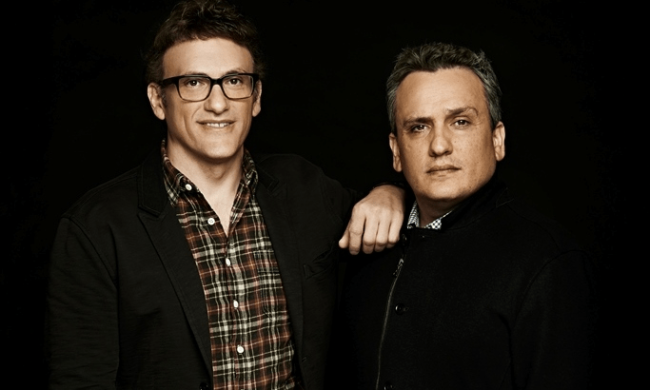As we inch towards an Avengers Infinity War Part 2 trailer, the Russo brothers, who directed the film, have been giving interviews. And one of their recent statements made me look up and say, “Wucchu talkin’ bout Willis?” Apparently, the Russo brothers aren’t fans of the two-hour storytelling format known in most corners of the world as the “feature film.” Here’s what they had to say: “We are in a major moment of disruption. The two-hour film has had a great run for about 100 years but it’s become a very predictive format. It’s difficult, I think, to work in it. … It’s sort of like saying, ‘We all like sonnets, so let’s tell sonnets for 100 years, as many ways as we possibly can… I’m not sure that this next generation that is coming up is going to see two-hour narrative as the predominant form of storytelling for them.”
That’s a bold statement. The two hour movie is dead? Have I been transported to another dimension? Actually, I admit to having similar thoughts over the last couple of years. One of the most annoying things about going to movies these days is that I always know what’s going to happen. Or, even if I don’t, I have a pretty good idea. The way the 2-hour 3-Act movie is set up necessitates that only a finite number of things can happen. I mean, if you set up a goal in the first act, the end of the movie is either going to be our hero achieving their objective or failing at it. If it’s a big Hollywood movie, they’re probably going to succeed. If it’s an indie movie, it’s not always obvious, but you usually have a good idea based on the tone of the film.
So I’m left to ask, “Why DO we still tell movies in a two-hour format?” Well, a big part of it is that movies have to be at least 80 minutes to be shown in a theater. This is so you don’t go see a movie and 40 minutes later the lights come up and you feel like you’ve been ripped off. The two hour format also seems to be the baseline for how long an audience is willing to sit down and watch a piece of cinematic entertainment before they start shuffling about and getting impatient. Hence why films are around two hours long. But I do think it’s a fair question to ask: Is this format the way it is because it’s the best way to tell a story or is it the way it is because we’ve gotten so used to it that we haven’t bothered to come up with anything else?
The argument towards change seems to be coming from the explosion of streaming entertainment. This new outlet has begun to tell stories in ways they haven’t been told before. Black Mirror has given us a series of one-hour films. Maniac is an 8 hour movie. And it seems like we’re only at the beginning of this experimentation process. Hulu just announced a John Grisham “universe” whereby two shows will be made side-by-side and tackle the same story from their own individual perspectives. Meanwhile, sites like Youtube are popularizing the 12-15 minute format, even if right not it’s being utilized mostly for real-life content creators. So TV/Streaming/Internet seems to be driving this “the two hour movie is dead” narrative.
But let’s not kid ourselves. TV still has its own story problems, namely the “never-ending second act.” Almost every story starts with a problem or issue that needs to be resolved. For example, with Lost, it was “We need to get off the island.” Or with Breaking Bad, it was, “Get my family taken care of before I die.” This ensures that the first few episodes (or, if a show is really well-written, the first few seasons) begin with a giant push. But inevitably we get to a point where it feels like we’re spinning our wheels. The new shorter-series streaming projects have less of this. But they’re still there. That’s one of the powers of the 2-hour format. Is that everything has to be decided by the end of the film. So there’s an amazing amount of momentum propelling the story forward. It’s a rush as opposed to a slow drip.
Still, I think there’s something to what the Russos are saying. The two hour feature storytelling format has become embarrassingly predictable. There are only so many ways you can remix the 3-Act structure. Every good story has a beginning, a middle, and an end. Sure, you can try and pull some Tarantino shit (“Every story should have a beginning, middle, and end, but not necessarily in that order”), but for the large majority of the writers who try that, their scripts come off less revolutionary than they do messy. Playing with time requires a deft touch. And it’s usually a gimmick to begin with.
I suspect the fate of the 2-hour film is going to play out over the next decade. The feature world will skew more and more towards spectacle, which means the majority of the non-Marvel movies we watch will be at home on streaming services, where there are no restrictions on time limit. And that’s where more and more chances will be taken. It’s going to take young writers and filmmakers who grew up without these hard-limitations in mind to discover different ways of telling stories. Despite that, I don’t think the core of how we tell a story will change. There will always be a beginning, a middle, and an end – a setup, a conflict, and a resolution. That’s how stories have been told for two thousand years. So I don’t see this “the two hour movie is dead” proclamation as doom-and-gloom. Maybe more of an evolution. And I wouldn’t mind that if it eliminates movies like Mortal Engines and Artemis Foul. Would you?


